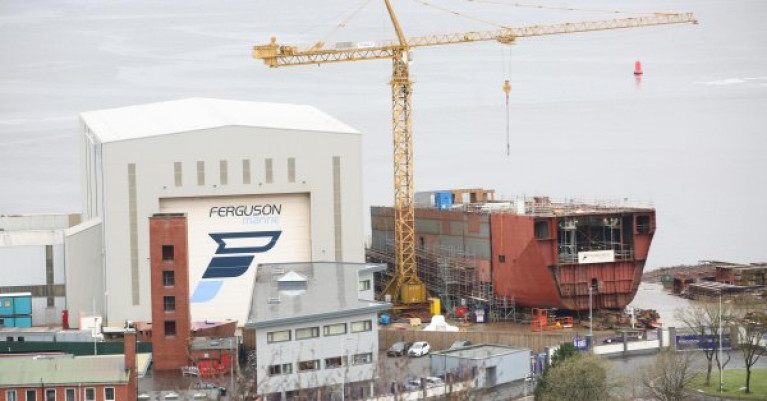Displaying items by tag: Delayed Calmac pair
Turnaround Boss of Ferguson Marine Leaves Before Delayed Scottish Ferries Finished
The boss brought in to turn around the fortunes of the nationalised Scottish shipyard building the delayed CalMac ferries is leaving his post.
Tim Hair has earned almost £1.3m for 454 days’ work since being appointed to lead Ferguson Marine by the Scottish Government in 2019.
His income makes him one of the UK’s highest-paid public officials, earning more than four times the salary of the First Minister. He previously defended himself telling STV News it was “value for money”.
But Mr Hair will depart the shipyard in February 2022, with the timetable for two lifeline ferries (for Arran and Uig) running over four years late at a cost of more than double the agreed £97m “fixed price”.
It follows the yard losing out to four foreign yards to tender for two ferries to serve Islay and Jura, meaning the vessels will not be constructed in Scotland.
STV news has more on the Clydeside shipyard.
























































